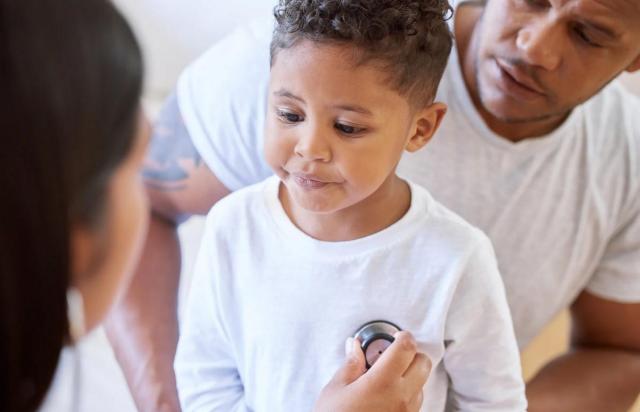This article is part of the Together Against RSV disease awareness initiative, created and funded by Sanofi.
Respiratory syncytial virus (RSV) is a common virus that can cause infection in the lower part of the respiratory system and is spread by coughs, sneezes or contact with RSV contaminated people or surfaces. It’s a seasonal virus that occurs mainly during the cold and flu season (October to April) and while it can affect approximately 90% of children by the age of 2 years of age, only 1 in 5 parents report a good level of knowledge of the disease.
RSV is highly contagious and a recent survey conducted by Sanofi shows that 3 in 4 parents would ask someone not to touch their child's face or hands to prevent the spread of the virus, something broadcaster Síle Seoige is fully on board with. “It’s really important that parents feel they can be upfront and ask visitors not to kiss their young child to prevent the spread of viruses, especially now that RSV season has begun.”
Síle has had first-hand experience with RSV as both her children (Cathal, who is now six and Clíodhna, who is almost two) have had it; “Before I had kids RSV just wasn’t on my radar, I had heard of it but I didn’t know what to look out for. Thankfully Cathal’s symptoms weren’t too bad but Clíodhna was only four months old when she got it and it developed into bronchiolitis which made her quite unwell. We ended up bringing her to Crumlin Emergency Department with her when her breathing became strained.”

Clíodhna’s breathing was monitored and medics were happy to let her go home after a few hours. Síle’s message to parents is to trust your gut instinct when it comes to your child’s health.
The survey also revealed that almost four out of five (79%) Irish parents had heard of RSV, but their overall understanding of the disease was low.
Most RSV infections in babies are mild and will clear up within a few weeks. However, some cases can be more serious with the highest rates of hospitalisation with RSV occurring in children under 5 years of age.
Symptoms of RSV can often resemble a cold at the beginning, including; fever, running nose, cough and sometimes croup (a barking cough caused by inflammation of the upper airways), sniffles, wheezing, decreased appetite and ear infections (in children).
Dr Máire Finn, GP at The Ennis Family Medical Centre says: “You should contact your GP if you are worried about your child’s symptoms, or notice rapid breathing, significantly reduced feeding, prolonged periods without wet nappies, or persistent high fever despite medication."
She notes that, although not common, sometimes symptoms can become severe quickly and you may observe instances of obvious breathing difficulties, significant pauses in breathing or unexplained sleepiness. If your child experiences any of these more severe symptoms then you should seek urgent medical attention from emergency services.
There are simple measures we can all take to minimise the spread of RSV. Frequent and careful handwashing with soap and water is one of the most important preventative actions. Always follow good cough etiquette by coughing into your sleeve or a tissue and encourage your children to do the same and if a sibling or other family member is symptomatic you should keep them away where possible.
Following the survey findings, Sanofi has launched an informative website www.togetheragainstrsv.ie that provides accurate information about RSV to complement HSE advice. The survey and website form part of a nationwide RSV campaign, Together Against RSV.








